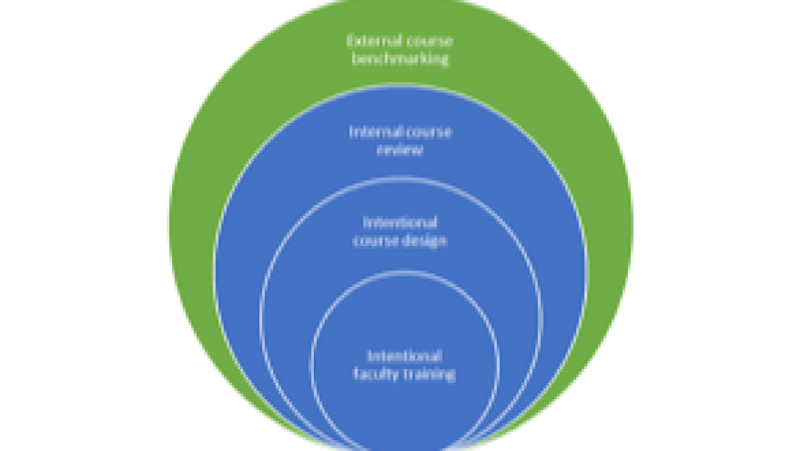Political Institutions and Institutional Design Training Course
Political Institutions and Institutional Design Training Course is meticulously crafted to empower participants with a comprehensive understanding of political institutions and the intricate process of institutional design

Course Overview
Political Institutions and Institutional Design Training Course
Introduction
Political Institutions and Institutional Design Training Course is meticulously crafted to empower participants with a comprehensive understanding of political institutions and the intricate process of institutional design. From mastering theoretical frameworks that link governance structures to societal outcomes to applying practical techniques for reforming existing institutions, you'll gain the expertise to rigorously analyze the complex dynamics at the intersection of politics, law, and social change. The course goes beyond abstract theory by focusing on evidence-based policy formulation and practical reform strategies, equipping you with the skills to drive meaningful institutional change and contribute to building resilient governance systems in a rapidly evolving global landscape.
This program is designed to bridge the gap between academic theory and real-world application, making it ideal for professionals seeking to advance their careers in public service, international development, and political analysis. You will engage with cutting-edge research, contemporary case studies, and innovative methodologies to understand how institutions shape political behavior, economic performance, and social justice. By the end of this course, you will not only be able to diagnose institutional weaknesses but also to design and advocate for institutional arrangements that foster transparency, accountability, and inclusive development.
Course Duration
5 days
Target Audience
- Government Officials.
- Public Sector Managers
- International Development Professionals
- Political Scientists and Academics.
- Lawyers and Legal Professionals
- Journalists and Political Analysts.
- Civil Society Leaders.
- Corporate Executives and Risk Analysts.
Course Objectives
- Analyze political institutions and their impact on governance.
- Master institutional design principles for effective public policy.
- Evaluate governance reforms and their outcomes.
- Develop strategies for constitutional design and legal frameworks.
- Understand political economy and institutional performance.
- Assess electoral systems and their effects on representation.
- Explore comparative politics and diverse institutional models.
- Identify drivers of institutional change and stability.
- Apply game theory to political decision-making.
- Formulate evidence-based policy recommendations.
- Diagnose and address institutional corruption.
- Promote social accountability and citizen engagement.
- Design resilient political systems in a globalized world.
Course Content
Module 1: Foundations of Institutional Analysis
- What are institutions? Formal and informal rules.
- The role of institutions in political and economic life.
- Rational choice and historical institutionalism.
- The State, markets, and civil society.
- Measuring institutional quality and governance indicators.
Module 2: Constitutional Design & Separation of Powers
- Principles of constitutional design.
- Checks and balances: presidential vs. parliamentary systems.
- Judicial independence and rule of law.
- Constitutional courts and judicial review.
- Case study: Post-conflict constitution-making in South Africa.
Module 3: Electoral Systems and Political Parties
- Majoritarian vs. proportional representation systems.
- Effects of electoral rules on party systems and political polarization.
- Campaign finance and political corruption.
- Party discipline, voter behavior, and accountability.
- Case study: Electoral reforms in New Zealand after the mixed-member proportional referendum.
Module 4: Institutional Reform & Governance
- Public sector reform and modern bureaucracy.
- Decentralization and local governance.
- Anti-corruption institutions and transparency mechanisms.
- Digital governance and e-government initiatives.
- Case study: The anti-corruption campaign in Singapore and its institutional basis.
Module 5: International Institutions & Global Governance
- The role of international organizations (e.g., UN, World Bank, IMF).
- Institutional design in global cooperation and conflict resolution.
- International law and transnational advocacy.
- Delegation of authority to supranational bodies.
- Case study: The institutional evolution of the European Union.
Module 6: Political Economy of Institutions
- How institutions shape economic development and growth.
- Property rights, contract enforcement, and market institutions.
- Inequality, redistribution, and political institutions.
- Resource curse and state failure.
- Case study: The impact of property rights reforms in China's economic transformation.
Module 7: Non-Democratic Institutions
- The institutional structure of authoritarian regimes.
- Patronage, clientelism, and informal institutions.
- Elections and legislatures in non-democracies.
- Regime stability and pathways to democratic transition.
- Case study: The institutional resilience of the Chinese Communist Party.
Module 8: Institutional Change & Social Movements
- Theories of institutional change.
- Social movements and citizen participation.
- The role of technology in political mobilization.
- Informal institutions and their influence on formal rules.
- Case study: The Arab Spring and its institutional consequences.
Training Methodology
This course employs an interactive, hands-on methodology that combines theoretical knowledge with practical application. The approach includes:
- Interactive Workshops: Facilitated group discussions, problem-solving exercises, and collaborative activities.
- Case Study Analysis: Deep dives into real-world scenarios to illustrate legal principles and challenges.
- Role-Playing & Simulations: Participants will simulate legal proceedings, policy debates, and negotiation scenarios.
- Expert-Led Lectures: Concise presentations by seasoned practitioners and academics.
- Peer-to-Peer Learning: Opportunities for participants to share experiences and best practices.
- Action Planning: Guided sessions to help participants develop a personal or organizational plan for applying their new skills.
Register as a group from 3 participants for a Discount
Send us an email: info@datastatresearch.org or call +254724527104
Certification
Upon successful completion of this training, participants will be issued with a globally- recognized certificate.
Tailor-Made Course
We also offer tailor-made courses based on your needs.
Key Notes
a. The participant must be conversant with English.
b. Upon completion of training the participant will be issued with an Authorized Training Certificate
c. Course duration is flexible and the contents can be modified to fit any number of days.
d. The course fee includes facilitation training materials, 2 coffee breaks, buffet lunch and A Certificate upon successful completion of Training.
e. One-year post-training support Consultation and Coaching provided after the course.
f. Payment should be done at least a week before commence of the training, to DATASTAT CONSULTANCY LTD account, as indicated in the invoice so as to enable us prepare better for you.